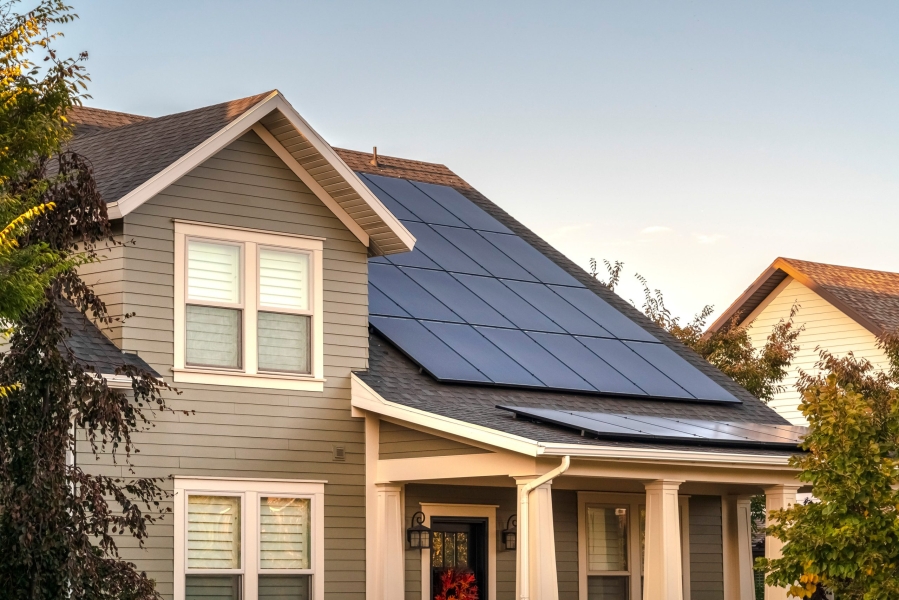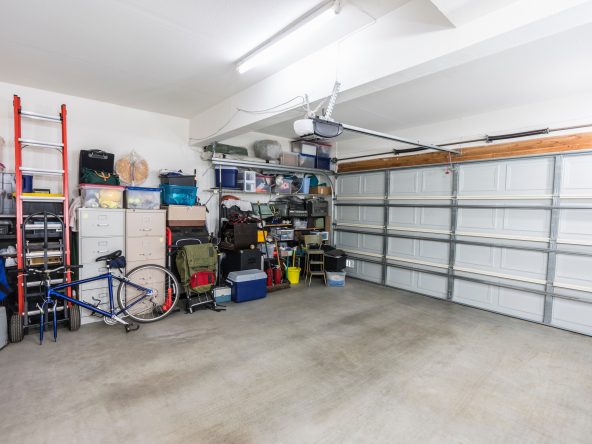You Ask, We Answer: How Can Solar Panels Save Money?
Maybe it’s the cost of your utility bill. Or maybe it’s your passion to protect the planet. Whatever your reason for being curious about solar panels, you’ve probably heard that they can save you money on your household bills–and with inflation still being what it is, saving money sounds increasingly more appealing, doesn’t it? Here are a few ways solar panels can save you money on your Connecticut home, and why you may want to consider them in the future.
First, how do solar panels work, exactly?
First thing’s first: Solar panels absorb sunlight, then convert it into electricity. This electricity can be used immediately to power your Connecticut home, or stored for later use in batteries. According to Real Simple, “The direct current electricity generated from solar panels flows through an inverter to generate alternating current electricity, which can power your home appliances. Extra energy that isn’t used by you will go to the electric grid, or an electric battery bank, if you have one.”
How does solar energy help the environment?
According to energy.gov, “As a renewable source of power, solar energy has an important role in reducing greenhouse gas emissions and mitigating climate change, which is critical to protecting humans, wildlife, and ecosystems. Solar energy can also improve air quality and reduce water use from energy production.”
The initial solar energy investment
If you’re interested in possibly installing solar panels in your Connecticut home, there will be expenses up front. This will depend on the size of your home, how many panels you’ll need to power it, how your home faces the sun and how much sun it gets throughout the day, which solar panel company you decide to use, and the rates of your local energy company.
As noted on energysage.com, “Connecticut’s average cost of a solar panel installation ranges from $13,558 to $18,342. A critical question many property owners have when they are considering installing solar panels is the amount of time it will take to recover their initial investment through electricity savings. This question is defined as the solar payback period. For Connecticut, the average solar payback period is 8.74 years.”
But thanks to tax incentives and government programs, you can save money on solar panel systems. Incentives vary by state, but you can check on which incentives Connecticut offers here. “The most valuable government incentive is the solar Investment Tax Credit (ITC), which has been extended by The Inflation Reduction Act (IRA) at 30 percent for another 10 years,” realsimple.com states. “Rooftop solar system owners can get the credit by filing IRS Form 5695 with their taxes to deduct 30 percent of the value of the solar system from their federal taxes. It is a one-time credit that can be rolled over into the next year if it cannot be claimed the same year.”
So…how can solar panels save you money?
While there is no doubt that solar panels are an investment up front, once you pass the “payback period” of approximately 8 years, you should start seeing the rewards, especially if you plan on living in your home for several decades. According to energysage.com, “Most people can save tens of thousands of dollars on electricity costs over the lifetime of a solar panel system (25+ years). The exact amount you can save depends on many factors, including how much you spend on electricity bills, how much electricity your solar panel system generates, incentives available in your area, and more.” And while your bottom line may not be immediately impacted, you will be doing the planet a favor from the get-go.
While investing in solar panels is not a quick fix for saving you money on your utility bills, they will help defray the cost of electricity, especially if you live in your Connecticut home long enough to surpass the payback period. And, as green energy becomes more popular, there may be new and more enticing tax incentives to encourage people to make the switch.
Of course, it’s always a good idea to do your research and compare companies to see what makes the most sense for your Connecticut home. Another great resource? Ask your Calcagni Real Estate agent! They may know other homeowners in your area who have invested in solar panels, or they may have done so themselves.
Have you made the switch to solar yet? We’d love to hear how it’s going!




